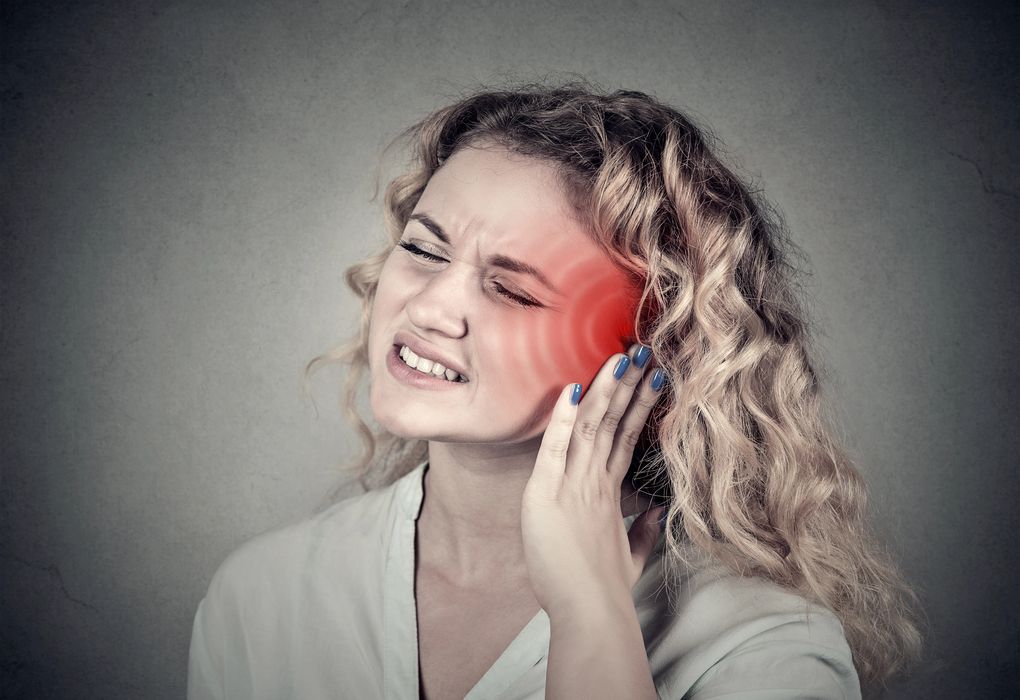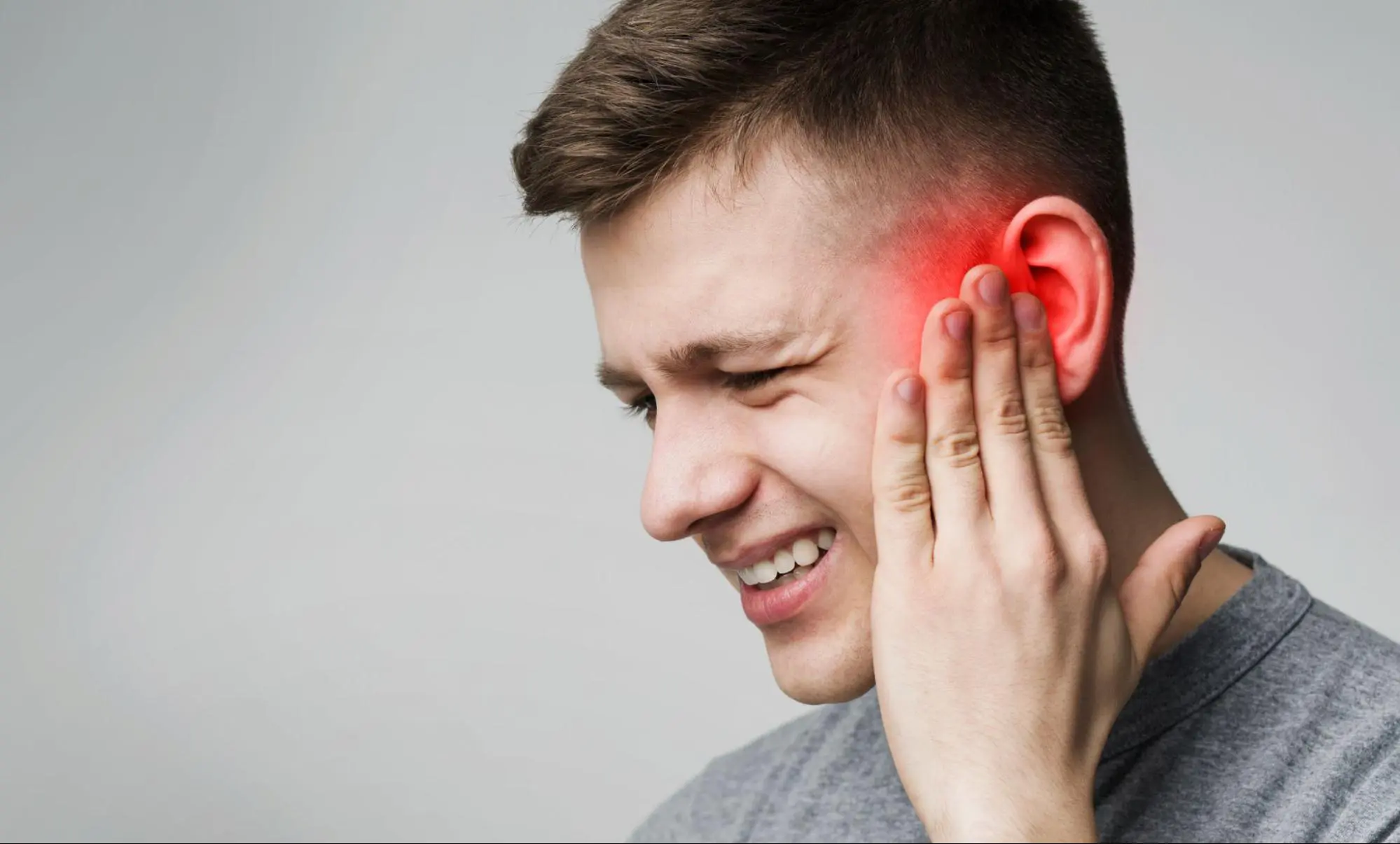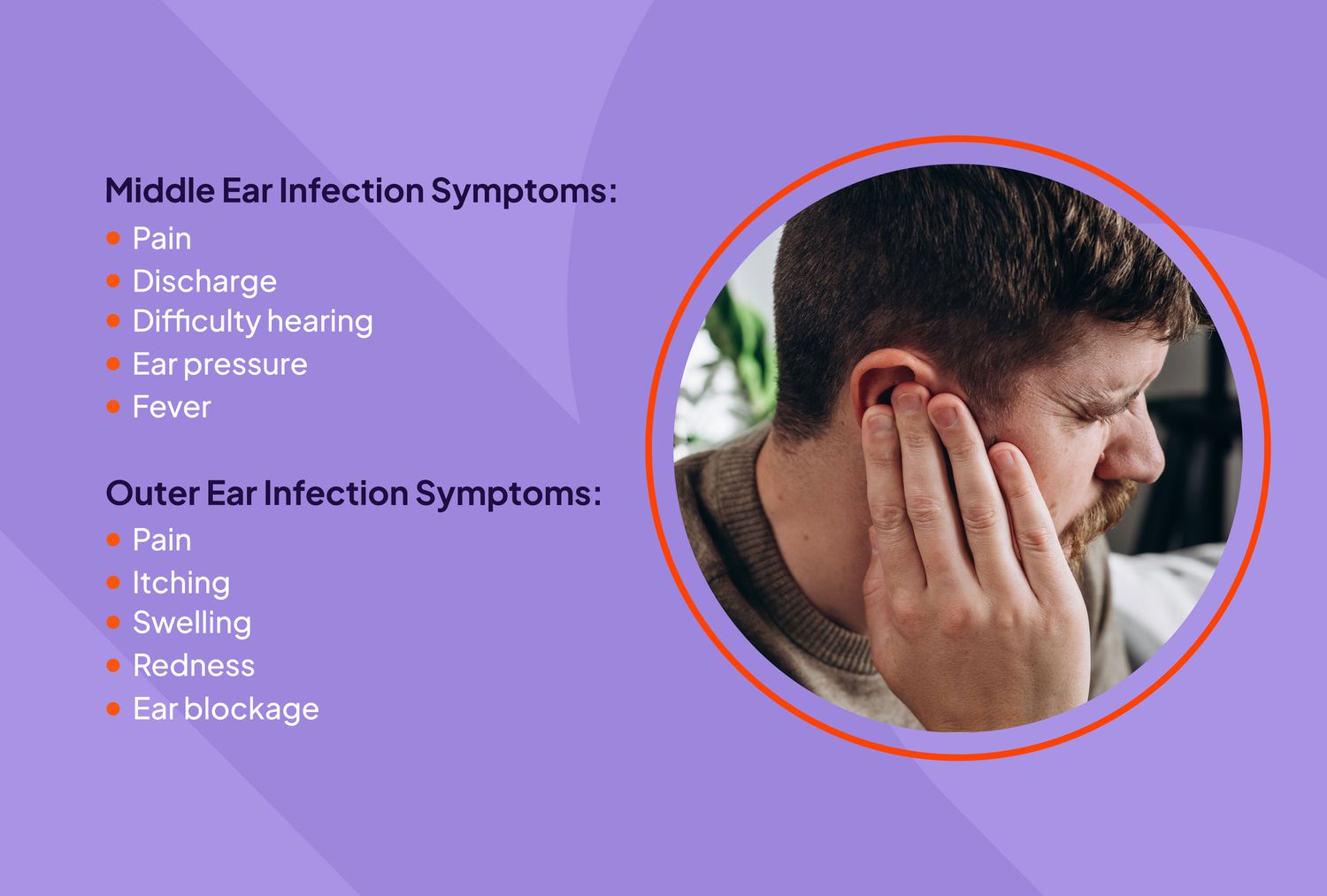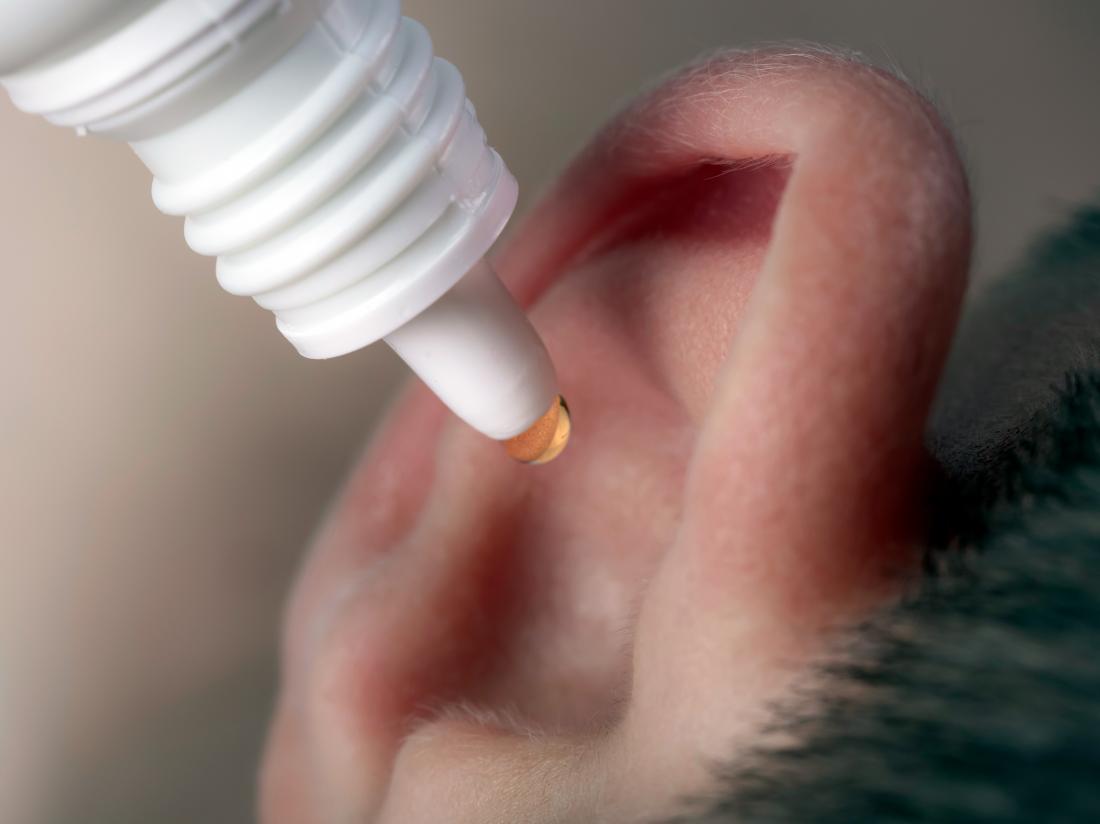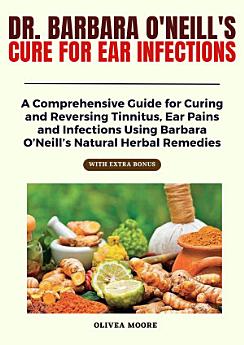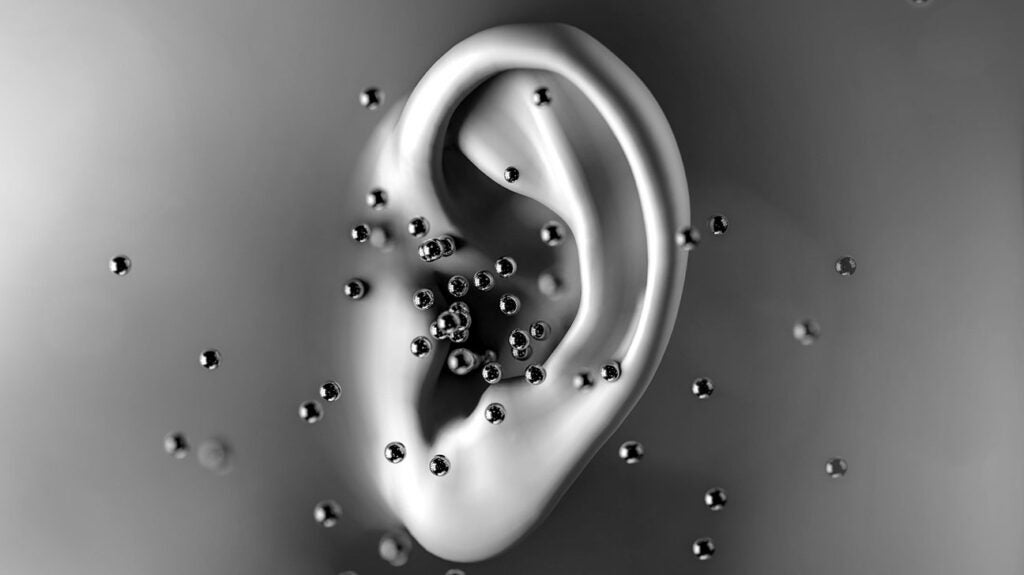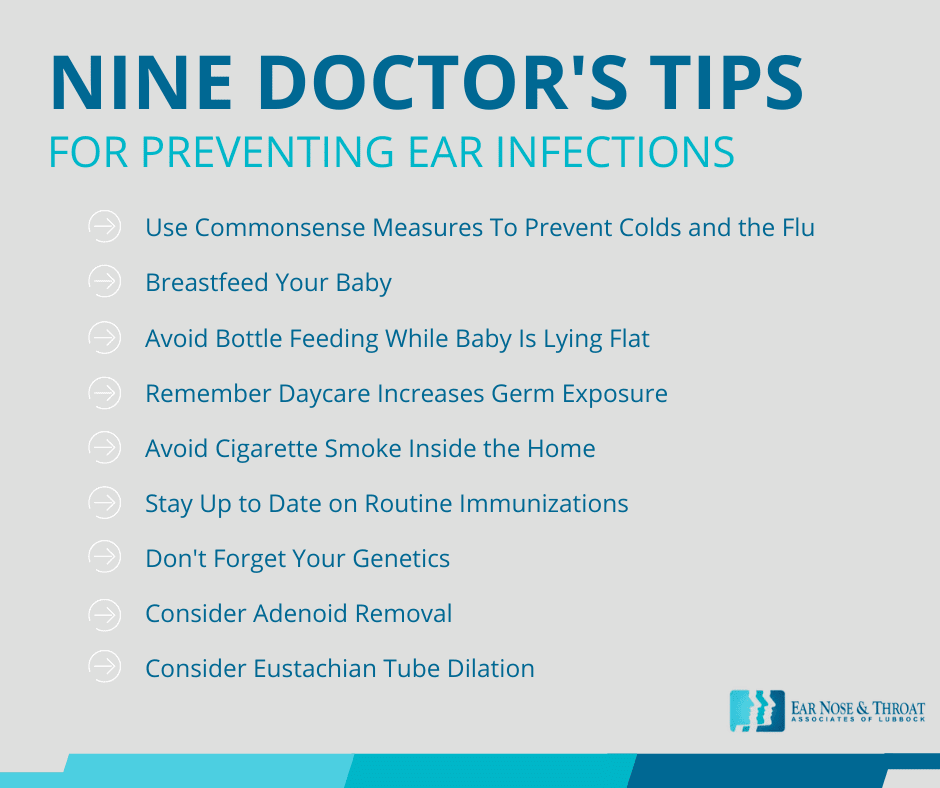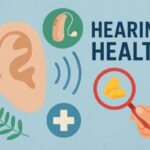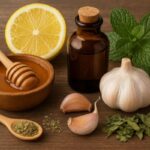Key Takeaways
- Ear infections can cause temporary tinnitus through inflammation, fluid buildup, and pressure changes in the ear.
- Common symptoms include persistent ringing, buzzing, or hissing sounds accompanied by ear pain, pressure, and potential hearing loss.
- Most infection-related tinnitus resolves when the underlying infection clears, typically within a few weeks with proper treatment.
- Severe or untreated ear infections may lead to eardrum damage and potentially permanent tinnitus.
- Both medical treatments and home remedies can help manage symptoms while the infection heals.
That persistent ringing in your ears after an ear infection isn’t just annoying—it’s your body sending important signals about your auditory health. Tinnitus from ear infections affects millions of people each year, often causing distress and disrupting daily activities.
Understanding the connection between ear infections and tinnitus can help you identify symptoms early and seek appropriate treatment. Hearing Wellness Center notes that while most infection-related tinnitus is temporary, knowing when and how to address it can prevent long-term complications and provide much-needed relief.
In this comprehensive guide, we’ll explore why ear infections trigger those phantom sounds, how to recognize when your symptoms require medical attention, and what treatments can help resolve both the infection and the associated tinnitus.
The Connection Between Ear Infections and Tinnitus
“Tinnitus after an Ear Infection” from www.joinoto.com and used with no modifications.
Tinnitus—the perception of sound when no external sound is present—commonly manifests as ringing, buzzing, hissing, or roaring in the ears. When caused by an ear infection, this phenomenon typically results from the infection’s direct impact on the structures of your ear. For those experiencing buzzing, exploring causes and relief options can be beneficial.
Your ear is a delicate, interconnected system. When bacteria or viruses invade this system, the resulting inflammation and fluid buildup can disrupt the normal transmission of sound signals to your brain. This disruption often manifests as tinnitus, which serves as an important warning sign that something isn’t right with your auditory system.
While many conditions can cause tinnitus, infection-related tinnitus is distinctive because it typically develops alongside other infection symptoms and often resolves when the infection clears. This temporary nature differentiates it from chronic forms of tinnitus that may stem from noise exposure, age-related hearing loss, or certain medications.
How Ear Infections Trigger Ringing in Your Ears
“Ear Infection: Signs and Symptoms” from www.health.com and used with no modifications.
Ear infections create the perfect conditions for tinnitus through several biological mechanisms. Understanding these processes helps explain why that persistent ringing accompanies your ear infection and what it means for your recovery.
Inflammation and Fluid Buildup
When pathogens enter your ear, your immune system responds by triggering inflammation—a protective process that increases blood flow to the affected area. This inflammation causes the tissues in your ear to swell, narrowing passages and trapping fluid that would normally drain away. The accumulated fluid creates pressure on your eardrum and the tiny bones (ossicles) that transmit sound to your inner ear.
This fluid-induced pressure alters how sound waves travel through your ear, creating abnormal stimulation of the auditory nerve. Your brain interprets this irregular nerve activity as sound—typically a high-pitched ringing or buzzing—even though no external sound exists. The more severe the inflammation and fluid buildup, the more intense the tinnitus symptoms may become.
Pressure Changes in the Middle Ear
Your middle ear normally maintains the same air pressure as your outer environment, thanks to the Eustachian tube connecting it to your throat. During an infection, this tube often becomes blocked due to inflammation or mucus buildup, preventing proper air circulation and pressure equalization. If you’re experiencing ringing in your ears due to these changes, here are some quick relief tips to help manage the symptoms.
The resulting pressure imbalance can cause your eardrum to bulge inward or outward, affecting how it vibrates in response to sound. These altered vibrations send irregular signals to your brain, which may interpret them as the phantom sounds of tinnitus. You might notice your tinnitus temporarily changing when you yawn, swallow, or perform other actions that affect ear pressure—a telltale sign that pressure fluctuations are contributing to your symptoms.
Eardrum Damage from Infection
In severe ear infections, bacteria can produce gases and toxins that increase pressure behind the eardrum to dangerous levels. If this pressure becomes excessive, it can cause the eardrum to rupture—a painful event that often results in immediate drainage of fluid and possible relief of pain, but potentially more intense tinnitus.
Even without rupture, infectious agents can directly damage the delicate structures of your middle and inner ear. Bacterial toxins may harm the sensitive hair cells in your cochlea that convert sound waves into electrical signals. Once damaged, these cells can spontaneously fire electrical impulses, creating the persistent sound sensations characteristic of tinnitus.
The combination of inflammation, pressure changes, and potential structural damage creates the perfect storm for developing tinnitus during an ear infection. Fortunately, addressing the underlying infection often resolves these issues, though severe or repeated infections may lead to more persistent tinnitus.
Medical Treatments to Clear Infection and Relieve Tinnitus
“Apple cider vinegar for ear infection …” from www.medicalnewstoday.com and used with no modifications.
Effective treatment of infection-related tinnitus requires addressing the underlying ear infection. Medical interventions target both the infectious agents and the resulting inflammation to provide relief from both the infection symptoms and the associated tinnitus.
Antibiotics for Bacterial Infections
When bacteria cause an ear infection, antibiotics are typically the first line of defense. Your doctor may prescribe oral antibiotics like amoxicillin for middle ear infections (otitis media) or antibiotic ear drops for outer ear infections (otitis externa). These medications work by killing the bacteria responsible for the infection, thereby reducing inflammation and allowing your ear to drain properly. For more on managing ear-related issues, you can explore relief and treatments for ear buzzing.
For mild to moderate infections, a 5-10 day course of antibiotics is standard. You may notice improvement in both your ear pain and tinnitus within 48-72 hours of starting treatment, though it’s essential to complete the full prescribed course even if symptoms subside. Premature discontinuation can lead to recurring infections and potentially antibiotic-resistant bacteria.
Antiviral Medications When Needed
While many ear infections are bacterial, viral infections can also trigger tinnitus. Conditions like labyrinthitis or vestibular neuritis often have viral origins and may benefit from antiviral medications in certain cases. These medications work best when started early in the infection and may help reduce the duration and severity of both the infection and associated tinnitus.
Unlike antibiotics for bacterial infections, antivirals may not be routinely prescribed for all viral ear infections. Your doctor will assess whether the potential benefits outweigh any risks based on the severity of your symptoms and your overall health status. For more insights on managing ear-related issues, you can explore expert answers to common tinnitus questions.
Pain Relief Options
Managing the pain of an ear infection not only improves comfort but can also indirectly help with tinnitus by reducing stress and allowing for better rest. Over-the-counter pain relievers like acetaminophen or ibuprofen can reduce both pain and inflammation, potentially decreasing the intensity of tinnitus symptoms.
For more severe pain, your doctor might prescribe stronger pain medication or numbing ear drops. These medications don’t directly treat the infection but can make recovery more comfortable while antibiotics or antivirals do their work. The reduction in pain-related stress may also help decrease your awareness of tinnitus sounds.
Drainage Procedures for Severe Cases
In cases where fluid buildup is severe or persistent, your doctor may recommend a minor procedure to drain the accumulated fluid. For middle ear infections, this might involve a myringotomy—a small incision in the eardrum to allow fluid drainage—sometimes followed by the placement of ear tubes (tympanostomy tubes) to provide ongoing ventilation and prevent fluid reaccumulation.
- Tympanostomy tubes: Small tubes inserted into the eardrum to allow fluid drainage and air entry
- Myringotomy: Surgical incision of the eardrum to relieve pressure and drain fluid
- Aural toilet: Professional cleaning of the ear canal to remove discharge and debris
- Aspiration: Removal of fluid using gentle suction through the ear canal
These drainage procedures can provide immediate relief from pressure and often significantly reduce tinnitus symptoms. For recurring infections, ear tubes may remain in place for 6-18 months before naturally falling out or being removed by a physician.
Most patients report substantial improvement in both infection symptoms and tinnitus following drainage procedures. The relief of pressure allows the auditory system to function more normally, often reducing or eliminating the phantom sounds associated with the infection.
6 Natural Remedies That Soothe Infection-Related Tinnitus
“Dr. Barbara O’Neill’s Cure for Ear …” from play.google.com and used with no modifications.
While medical treatments address the underlying infection, several natural remedies can complement these approaches by providing symptomatic relief. These home-based interventions can help manage discomfort and potentially reduce tinnitus while your body fights the infection.
Always consult with your healthcare provider before trying natural remedies, especially if you’re already taking prescribed medications. These approaches work best as complementary treatments rather than replacements for medical care.
1. Warm Compresses for Pain and Inflammation
Applying a warm, moist compress to the affected ear can help reduce pain and inflammation associated with ear infections. The gentle heat improves blood circulation to the area, which can speed healing and provide natural pain relief. Simply soak a clean washcloth in warm (not hot) water, wring out excess moisture, and hold it against the ear for 10-15 minutes several times daily. This simple technique can temporarily reduce the perception of tinnitus by easing pain and helping your ear drain more effectively.
2. Salt Water Gargling for Eustachian Tube Relief
The Eustachian tube connects your middle ear to your throat, and its proper functioning is crucial for ear pressure regulation. Gargling with warm salt water (¼ to ½ teaspoon of salt in 8 ounces of warm water) several times daily can help reduce inflammation around the Eustachian tube openings in your throat. This improved drainage pathway may help equalize pressure in your middle ear, potentially reducing both ear fullness and tinnitus intensity. For best results, tilt your head back while gargling to allow the solution to reach the back of your throat where these tubes open.
3. Elevation and Positioning During Sleep
- Elevate your head with extra pillows to promote better drainage
- Sleep on the unaffected side to help the infected ear drain
- Use a specially designed ear pillow with a cutout for the affected ear
- Avoid sleeping completely flat, which can increase pressure in the ear
Proper positioning while sleeping can significantly impact how quickly fluid drains from your infected ear. Keeping your head elevated allows gravity to assist in moving fluid away from the middle ear through the Eustachian tube. Many people notice their tinnitus is worse when lying down, so these positioning strategies can provide notable relief during rest periods.
For maximum benefit, maintain elevation throughout the night rather than just at the beginning. This consistent positioning helps prevent fluid from pooling in the ear and maintains better pressure equalization, which can lead to reduced tinnitus intensity upon waking.
If you find standard pillows uncomfortable when elevated, consider using a wedge pillow specifically designed to maintain proper elevation without causing neck strain. This can make the positioning more comfortable for extended periods.
Combining elevation with sleeping on your unaffected side creates optimal conditions for drainage while minimizing pressure on the infected ear. This dual approach often provides the most significant relief from both ear pain and tinnitus symptoms overnight.
4. Steam Inhalation Techniques
Steam inhalation can help open the Eustachian tubes and promote drainage of fluid from the middle ear. The warm moisture helps thin mucus and reduce inflammation in the nasal passages and throat, indirectly benefiting the ears. To try this remedy, fill a bowl with steaming hot water (not boiling), place a towel over your head to create a tent, and breathe deeply through your nose for 5-10 minutes. Adding a few drops of eucalyptus or tea tree essential oil may enhance the decongestant effect.
For children or those who find the traditional method uncomfortable, running a hot shower and sitting in the steamy bathroom can provide similar benefits. This gentler approach still delivers moisture to the respiratory passages without the risk of burns from hot water or steam. Perform steam inhalation 2-3 times daily until your symptoms improve.
5. Ginger and Turmeric Anti-Inflammatory Drinks
Harnessing the natural anti-inflammatory properties of ginger and turmeric can help reduce ear inflammation and potentially ease tinnitus symptoms. Try preparing a therapeutic drink by steeping fresh ginger slices (about 1 inch) and ¼ teaspoon of turmeric powder in hot water for 5-10 minutes, then adding honey and lemon to taste. Consuming this warm mixture 2-3 times daily may help reduce overall inflammation in the body, including in the ear structures affected by infection, while the warmth of the drink can also help stimulate drainage through the Eustachian tubes.
6. Apple Cider Vinegar Rinses
Apple cider vinegar’s antimicrobial properties make it potentially useful for outer ear infections that cause tinnitus. Mix equal parts of warm water and apple cider vinegar, then use a clean dropper to place a few drops in the affected ear while keeping your head tilted. After a minute, tilt your head in the opposite direction to allow the solution to drain out. This remedy works best for swimmer’s ear (otitis externa) rather than middle ear infections, as the solution only contacts the ear canal, not the middle ear beyond the eardrum. Always consult your healthcare provider before trying this approach, especially if you suspect your eardrum might be perforated.
When using apple cider vinegar rinses, it’s important to use only diluted solutions to avoid irritation of the delicate ear canal tissues. Start with more diluted mixtures (one part vinegar to three parts water) and gradually increase the concentration if well tolerated. This gentle approach helps ensure you don’t inadvertently worsen inflammation or discomfort. For those interested in alternative remedies, exploring acupuncture for tinnitus may provide additional insights.
Will Your Tinnitus Go Away After the Infection Clears?
“Signs that tinnitus is going away and …” from www.medicalnewstoday.com and used with no modifications.
The question foremost in most patients’ minds is whether the frustrating ringing or buzzing will disappear once the infection resolves. In most cases, tinnitus related to ear infections is temporary and diminishes as the infection clears and inflammation subsides. Your ear’s structures gradually return to their normal state, allowing proper sound transmission and eliminating the conditions that created the phantom sounds.
However, the timeline and completeness of tinnitus resolution can vary significantly based on several factors, including the severity and duration of the infection, how quickly treatment was initiated, and whether any structural damage occurred. Understanding these variables can help set realistic expectations for recovery and alert you to situations where additional medical intervention might be necessary.
- Mild infections typically cause tinnitus that resolves within days to weeks
- Severe or prolonged infections may lead to tinnitus lasting several months
- Infections causing structural damage might result in permanent tinnitus
- Recurrent infections increase the risk of persistent tinnitus
For most patients with prompt treatment, infection-related tinnitus follows a predictable improvement pattern that parallels the healing of the infection. As inflammation decreases and fluid drains, pressure on the auditory structures normalizes, and tinnitus gradually fades. This improvement often occurs incrementally rather than suddenly, with many patients reporting good days and bad days during recovery. For more information on how to manage symptoms, check out these quick relief tips for tinnitus.
If your tinnitus persists unchanged for more than two weeks after your other infection symptoms have resolved, this may warrant follow-up with your healthcare provider. Persistent tinnitus could indicate ongoing inflammation, fluid retention, or potential damage to auditory structures that might benefit from additional treatment approaches.
Timeline for Temporary Tinnitus Resolution
Most patients experience a gradual improvement in tinnitus symptoms following this general timeline: within 48-72 hours of starting antibiotics, you may notice reduced intensity of the tinnitus sounds; after 5-7 days, the tinnitus often becomes intermittent rather than constant; by 2-3 weeks post-infection, most patients report complete or near-complete resolution of tinnitus. This progression can vary based on the specific type of infection, with outer ear infections (otitis externa) often resolving more quickly than middle ear infections (otitis media), which may take longer to fully clear due to the challenges of draining the middle ear space.
Risk Factors for Persistent Tinnitus
Several factors can increase your risk of developing long-term or permanent tinnitus following an ear infection. Age plays a significant role, with adults over 55 experiencing higher rates of persistent tinnitus after infections compared to younger individuals. This increased risk stems from age-related changes in ear structures and slower healing processes that may allow infection-related damage to become permanent rather than resolving fully.
Your medical history also significantly impacts tinnitus outcomes. Pre-existing hearing loss, previous ear surgeries, or a history of recurring ear infections all predispose you to persistent tinnitus. These conditions may have already compromised your auditory system’s resilience, making it more vulnerable to lasting damage from new infections. Additionally, certain health conditions like diabetes, autoimmune disorders, and cardiovascular disease can impair healing and increase inflammation, potentially prolonging tinnitus symptoms.
Risk Assessment for Persistent Tinnitus After Ear Infection
Low Risk: First-time mild infection, prompt treatment, no pre-existing ear conditions, under age 40. For more information on effective treatments, you might explore tinnitus treatment options.
Moderate Risk: Delayed treatment (>72 hours), recurrent infections (2-3 per year), mild pre-existing hearing loss
High Risk: Severe or prolonged infection, perforated eardrum, multiple previous infections, age 55+, underlying conditions affecting circulation or immunity
Treatment timing and approach significantly affect long-term outcomes. Delaying antibiotic treatment beyond 72 hours for bacterial infections allows inflammation to persist longer, potentially causing more extensive damage to delicate ear structures. Similarly, inadequate treatment—such as not completing the full course of prescribed antibiotics or using inappropriate medications—can lead to incompletely resolved infections that leave lasting effects on your auditory system, including chronic tinnitus.
Signs Your Tinnitus May Be Permanent
While most infection-related tinnitus resolves, certain warning signs suggest your tinnitus might become a permanent condition. If your tinnitus persists unchanged for more than two months after your infection has cleared, or if it remains at the same intensity despite improvement in all other ear symptoms, these may indicate permanent changes to your auditory system. Additionally, tinnitus accompanied by permanent hearing loss in the affected ear often signifies structural damage that won’t fully heal. When tinnitus sounds change from simple ringing to complex patterns (like pulsing synchronized with your heartbeat or multiple tones), this complexity often indicates more significant involvement of your auditory pathway and a higher likelihood of persistence.
Preventing Future Ear Infections and Tinnitus Episodes
“Ear Nose and Throat – 9 Doctor’s Tips …” from www.entlubbock.com and used with no modifications.
After experiencing tinnitus from an ear infection, preventing recurrence becomes a priority. The good news is that many effective preventive strategies can significantly reduce your risk of future infections and their associated tinnitus. These approaches focus on maintaining ear health, supporting your immune system, and creating environmental conditions that discourage pathogen growth.
Proactive prevention is particularly important if you’ve experienced persistent tinnitus or have any risk factors for developing long-term auditory issues. Each ear infection potentially increases the risk of lasting damage, making prevention far more valuable than treatment. For those who’ve already experienced tinnitus from an infection, implementing these strategies may help protect your hearing health for years to come.
Consider keeping a health journal to track potential triggers or situations that preceded previous ear infections. This personalized approach can help you identify and avoid your specific risk factors, whether they include swimming in certain waters, seasonal allergies, or upper respiratory infections that tend to spread to your ears. With consistent preventive measures, many people successfully reduce infection frequency or avoid recurrences altogether.
Immune-Boosting Strategies
A robust immune system forms your first line of defense against ear infections and subsequent tinnitus. Focus on immune-supporting habits like consuming a diet rich in colorful fruits and vegetables that provide antioxidants and phytonutrients. Ensure adequate vitamin D levels through brief sun exposure or supplements, as this vitamin plays a crucial role in immune function and has been linked to reduced infection rates. Regular moderate exercise improves circulation and immune cell function, while adequate sleep (7-9 hours nightly for adults) allows your immune system to regenerate. During cold and flu season, consider additional precautions like frequent handwashing and avoiding close contact with sick individuals, as upper respiratory infections often precede ear infections.
Proper Ear Cleaning Techniques
Contrary to common practice, most ears require minimal cleaning, as they naturally self-clean through the migration of skin cells from the eardrum outward. Never insert cotton swabs, hairpins, or other objects into your ear canal—these can push wax deeper, damage the ear canal skin, or even perforate your eardrum. Instead, clean only the outer portion of your ears with a warm, damp washcloth, allowing wax to naturally work its way out during showering.
If you produce excessive earwax that feels uncomfortable or affects your hearing, safer removal options include over-the-counter ear drops specifically designed to soften wax, followed by gentle irrigation with a rubber bulb syringe. For persistent wax issues, professional removal by a healthcare provider offers the safest approach. Remember that some earwax is beneficial, as it has antimicrobial properties that help prevent infections—removing too much can actually increase your infection risk.
When to Use Earplugs
Strategic use of earplugs can significantly reduce your risk of developing certain types of ear infections, particularly swimmer’s ear (otitis externa). When swimming, use silicone or custom-molded swimming earplugs to keep water out of your ear canals, especially in potentially contaminated water sources like lakes and rivers. After swimming or bathing, thoroughly dry your outer ears with a towel and tilt your head to each side to allow water to drain. For those prone to recurrent swimmer’s ear, consider using alcohol-based ear drops after water exposure to promote drying and create an inhospitable environment for bacteria. However, avoid using earplugs regularly during sleep or daily activities, as this can increase moisture retention in the ear canal and potentially increase infection risk rather than reducing it. If you experience persistent ear ringing, learn about quick relief tips for tinnitus.
Allergy Management for Ear Health
Allergies and ear infections share a close relationship, with allergic reactions often triggering the inflammation and fluid accumulation that can lead to middle ear infections and tinnitus. Managing environmental allergies through methods like regular household dusting, using HEPA air filters, washing bedding in hot water weekly, and keeping windows closed during high pollen seasons can significantly reduce ear infection frequency. For those with known allergies, consistent use of prescribed antihistamines, nasal corticosteroids, or allergen immunotherapy can help prevent the nasal congestion and Eustachian tube dysfunction that often precede ear infections. Identifying and addressing food allergies or sensitivities may also benefit some individuals, particularly if you notice patterns of ear fullness or mild tinnitus following consumption of certain foods.
Frequently Asked Questions
Below are answers to the most common questions patients ask about tinnitus related to ear infections. These responses address concerns about population-specific risks, treatment timelines, and home management strategies to help you navigate this challenging symptom with greater confidence and understanding.
Can children develop tinnitus from ear infections?
Yes, children can definitely experience tinnitus from ear infections, though they may describe it differently than adults. While adults typically report “ringing” or “buzzing,” children might say they hear “bees,” “whistling,” or that their ear “feels funny.” Because children have shorter, more horizontal Eustachian tubes than adults, they’re more prone to ear infections in general, which increases their risk of infection-related tinnitus.
Children may not spontaneously report tinnitus symptoms, so parents should watch for behavioral cues like irritability, covering or pulling at ears, difficulty concentrating, or asking to turn the volume up on devices. If your child has an ear infection and shows these signs, mention the possibility of tinnitus to their healthcare provider.
Fortunately, children typically experience excellent recovery from infection-related tinnitus as their bodies heal. Their faster cell regeneration and tissue repair processes often result in complete resolution of tinnitus once the infection clears. However, in cases of recurrent infections, children may benefit from an evaluation by a pediatric ENT specialist to address any underlying structural issues that might be contributing to the recurring problems. For more insights, you can explore common tinnitus questions answered by top audiologists.
For school-aged children experiencing tinnitus, temporary accommodations might include sitting closer to the teacher, reducing classroom noise, or providing written instructions to supplement verbal ones until the tinnitus resolves. These simple adjustments can significantly reduce frustration and learning disruptions during recovery.
- Watch for children covering their ears in quiet environments
- Note complaints about strange sounds that others can’t hear
- Be alert to increased irritability during or after ear infections
- Monitor for sleep disturbances that might indicate nighttime tinnitus
- Observe if the child seems unusually distracted or has trouble focusing
How long does tinnitus typically last after an ear infection?
Tinnitus duration varies widely depending on infection severity and treatment timing, but most cases follow a predictable pattern: mild infection-related tinnitus typically begins improving within 2-5 days of starting antibiotics and resolves completely within 2-4 weeks as inflammation subsides and fluid drains from the middle ear. More severe infections may cause tinnitus lasting 6-8 weeks, while cases involving eardrum perforation might experience symptoms for 2-3 months until the membrane fully heals. If your tinnitus shows no improvement after two weeks of treatment or persists unchanged for more than two months after other infection symptoms have resolved, consult your healthcare provider for reevaluation, as this may indicate complications requiring additional intervention.
Can over-the-counter pain relievers help with infection-related tinnitus?
Over-the-counter pain relievers like ibuprofen, naproxen, and aspirin can indeed help manage tinnitus associated with ear infections, primarily by reducing inflammation in the ear structures. These nonsteroidal anti-inflammatory drugs (NSAIDs) decrease the swelling that puts pressure on your auditory system, potentially lowering tinnitus intensity. For maximum benefit, take these medications consistently as directed rather than only when symptoms are severe, allowing them to maintain anti-inflammatory effects throughout the day. However, be aware that aspirin and NSAIDs themselves can occasionally cause or worsen tinnitus in some individuals when taken in high doses or for prolonged periods—if you notice your tinnitus worsening after starting these medications, consult your healthcare provider about alternative options.
Is it safe to use essential oils for tinnitus relief?
The use of essential oils for tinnitus relief requires careful consideration. While some oils like lavender, helichrysum, and cypress have traditional uses for ear complaints, direct application in or near the ear canal can be dangerous, particularly if there’s any possibility of eardrum perforation. Essential oils are highly concentrated and can cause chemical burns to delicate ear tissues or severe irritation if they make contact with the middle ear. For more information on alternative tinnitus treatments, you can explore insights on acupuncture for tinnitus.
Safer approaches include diffusing oils in your environment to promote relaxation (which may indirectly help by reducing stress-related tinnitus amplification), applying diluted oils to the mastoid bone behind the ear (always properly diluted with a carrier oil), or using aromatherapy for stress management during tinnitus episodes. Before trying any essential oil approach, consult both your healthcare provider and a qualified aromatherapist, especially if you’re taking medications, as some essential oils can interact with pharmaceutical treatments for ear infections.
Should I avoid certain foods when experiencing tinnitus from an ear infection?
While there’s no universal diet for tinnitus management, certain dietary adjustments may help reduce symptom intensity during recovery from an ear infection. Consider temporarily reducing consumption of caffeine, alcohol, and high-sodium foods, as these can affect fluid regulation and blood flow in ways that might exacerbate tinnitus. Caffeine and alcohol in particular can increase blood pressure and alter blood flow to the inner ear, potentially intensifying tinnitus sounds.
Foods with anti-inflammatory properties may provide modest benefits during recovery. Incorporate omega-3 rich foods like fatty fish, flaxseeds, and walnuts, along with colorful fruits and vegetables high in antioxidants. Some patients report symptom improvement when following a Mediterranean-style diet that emphasizes these anti-inflammatory components while limiting processed foods.
Maintaining proper hydration supports overall ear health and may help thin mucus, improving drainage through the Eustachian tubes. Aim for at least 64 ounces of water daily unless otherwise restricted by your healthcare provider. Tracking your food intake alongside tinnitus symptoms can help identify personal triggers—some individuals find that specific foods like aged cheeses, red wine, or MSG-containing products temporarily worsen their tinnitus. For more information on potential causes and relief methods, you can explore how to stop buzzing in ears.
Remember that dietary changes should complement, not replace, medical treatment for the underlying ear infection. While nutrition plays a supporting role in recovery, antibiotics or other prescribed treatments remain essential for resolving the infection itself. For persistent or severe tinnitus, work with healthcare providers who can offer comprehensive approaches that include both medical treatment and appropriate lifestyle modifications.
For ongoing support with tinnitus management and ear health, Hearing Wellness Center offers specialized care to help you achieve optimal auditory health and function.
